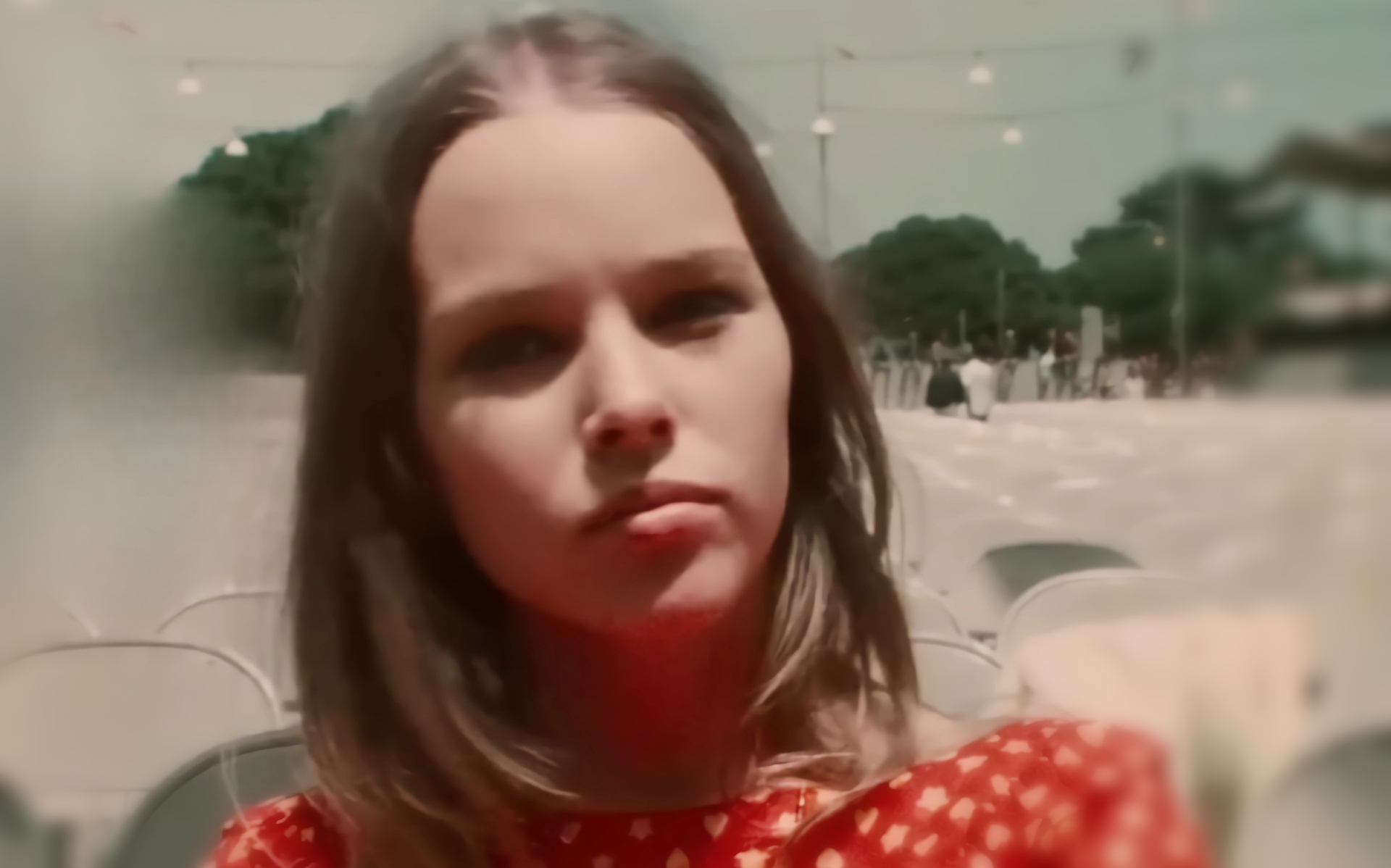
Michelle Phillips speaks to Jason Barnard about her life. From The Mamas & The Papas’ inception, hits, and the tangled web of their demise, she unearths the soul behind ‘California Dreamin’, ‘Creeque Alley’, and ‘Monday, Monday’. The interview takes us back to the 1960s, where the music soared, tensions simmered, and legacies were etched into vinyl. Phillips’ words resonate with the turbulent rhythm of a rock ‘n’ roll saga.
I’ve been reading the wonderful book by Richard Campbell, ‘Getting Kinda Itchie’ which covers the groups before The Mamas & The Papas. To set the scene, can you tell me about your childhood. You split your time between LA and Mexico, didn’t you?
Yes, I went to Mexico with my father and my sister when I was six and I came back when I was 12. But I came back every six months. We had to drive to the border and renew our visas so we were on the road a lot. But my father was going to Mexico City College and my sister and I were going to little Mexican private schools. It was really a great adventure for us.
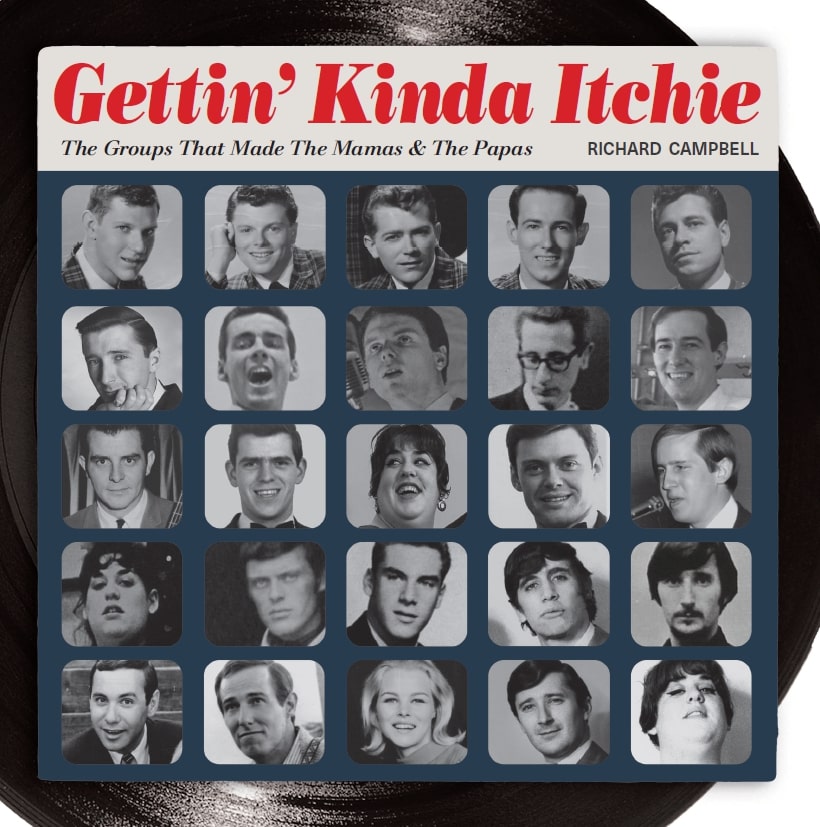
When did you become friends with Tamar Hodel?
I think I was 14 when I met her, she was 23 and was really glamorous. I met her in a very strange way. My sister had a boyfriend named Kelly Hodel. He came over once and we were talking. He said “I’ve just found out that my half sister lives around the corner and I’ve never met her.” And I said “Really?” He said “Yeah. Her name is Tamar.” I said, “Well, let’s go meet her”. And this very pretty 23 year old woman answered the door and she was dressed all in lavender. She had a lavender suit on and her hair and makeup was all done. She greeted us with open arms. Her apartment was all lavender too and a lot of beautiful glass. She was very sophisticated for her age and I just became very, very good friends with her immediately. She also had a little girl who was her daughter. Her only child, at that point, was with Stan Wilson. He kind of sang Calypso songs.
So she was very close to the music scene in Los Angeles and we would go to clubs. She would take me into clubs with her and everybody knew her. I met Odetta and the Kingston Trio. She would play records for me like Bessie Smith, Paul Robeson and Josh White. And I realised that the Kingston Trio were not really folk singers.
She decided to move back to San Francisco where she was from. So when summer vacation came, I was still in high school. She said, “Why don’t you ask her father if you can come up and spend this summer up here.” I thought that was a really good idea and my father said “Yeah, you can go but behave yourselves and write to me. Let me know how things are going.” Then by the end of the summer he expected me to come home. Obviously I didn’t want to go home. I had met John Phillips at that point and I was a teenager in love. At this point several years had passed and I was now 17. I would be 18 the following June.
John wanted to take me to New York. And I said, “Well, we have to ask my dad.” So John, in his characteristic way, just charmed the bird off the tree. He convinced my father that he would take very good care of me and he was madly in love with me. My Father realised that within a few months I would be able to just leave and go anyway. So he just said, “Okay, you can go. Remember you can always come home, Michelle. Then he turned to John and he said “At least throw her a book every now and then.” [laughs] That’s how John and I started our life together.
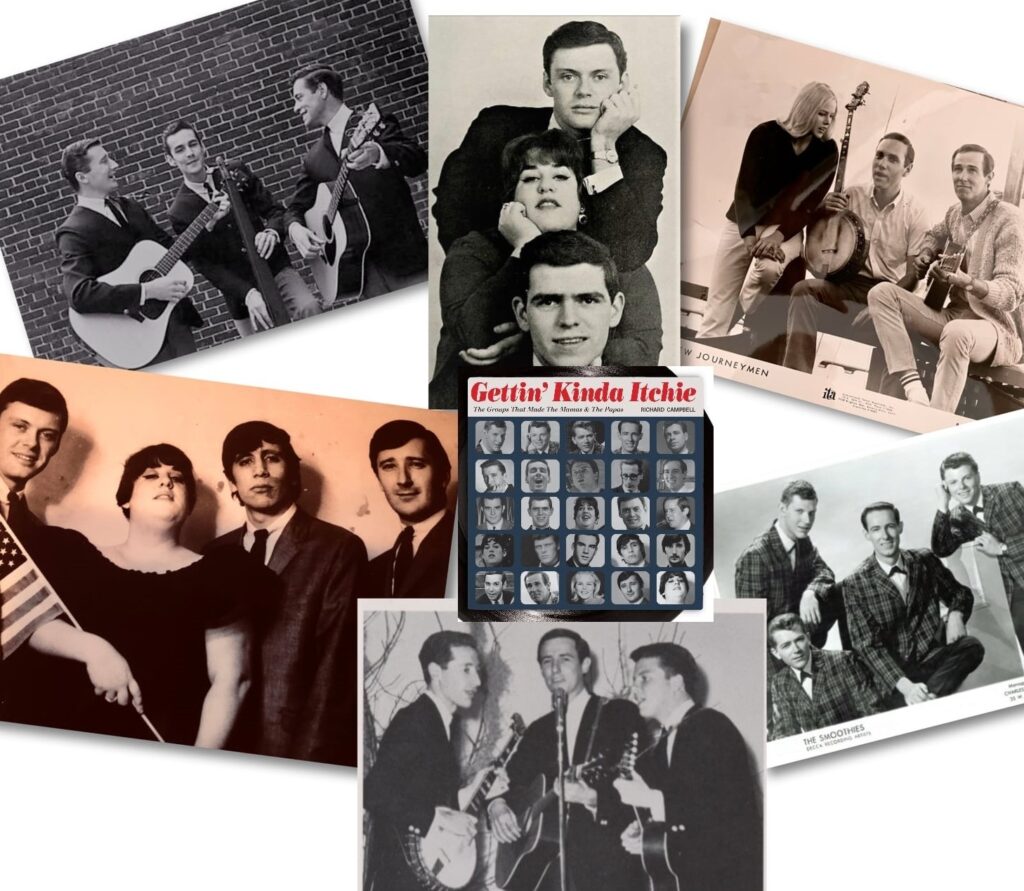
So at the time when you met John he was part of a trio in The Journeyman, so that was with Scott McKenzie and Dick Weissman?
Yeah, he was in The Journeyman. That was about his fourth group. Before that, it was a group called the Smoothies, before that it was a group called The Abstracts. He got into the folk scene because that’s where popular music was going and he desperately wanted to be successful. So he started to learn every folk song that Dick Weissman knew, and Dick knew a lot about it. He was really kind of a musicologist. So that’s what they sang.
They went from kind of a jazzy group to a folk group, which was good because they were very good. They were a very well-received group. They played clubs and the college concert tour all the time. They worked incessantly.
And you were modelling at the time?
I was very happily ensconced in the Village and I was modelling. I had been modelling in San Francisco also. So I got a good agency in New York and I started working all the time. I was doing a lot of teenage lingerie which was my favourite thing to do because it paid double. There was a lot of work in teenage lingerie for 17 Magazine and for 16 Magazine. Then I started doing a lot of work for Kayser Roth, which was, and probably still is, a big lingerie company.
And at this point, The Journeyman had broken up. I was kind of the Yoko Ono of that group because John started taking me on the road a lot, and that didn’t sit well with Scott. I don’t think it sat very well with Dick Weissman either. So they broke up and I was modelling and was offered a big contract by Kayser Roth and I was so excited about it. John said “No. I’m gonna put a new group together and you’re going to be in it.” I was just flabbergasted.
I said, “Why? What do you mean I’m going to be in? I am not a singer.” He said “You sing just fine.” [laughs] I really fought him on it, but he finally convinced me that I did sing fine, and I really did.
I had no ambition to be a singer and I had no interest in working that hard. Modelling was very easy, and rewarding in the sense that I was getting a lot of money. John said “Look you’ll make more money singing than you will modelling. I said “How’s that?” He said “Well, because we take two-thirds because it’s a trio. We get two thirds of the money.” So by greed alone I decided to become a singer.
This was The New Journeyman that was yourself, John and Denny.
Well, originally it was Michelle, John and Marshall Brickman.
Oh, okay.
Yeah, it was Marshall Brickman, he had just come out of The Terriers, and he was an incredible guitar and banjo player. We needed someone in the group. I played no instruments, and John played rhythm guitar.
But we need a real guitar player and a real banjo player. And Marshall just fit that bill beautifully. But there wasn’t really a singer, a great singer among us. So at a certain point, Marshall just said, “You know, I love you guys, but I’m going to quit the group because I want to go to New York and try my hand at writing.”
And we were laughing up our sleeves and saying, “Oh, okay, Marshall. You go right.” Of course, he became a writer for every talk show host, every late-night show, and then he wrote Annie Hall with Woody Allen. He wrote Annie Hall, got an Academy Award for that, then continued working with Woody for years. They collaborated on several movies. He wrote the book for and produced the Jersey Boys.
I think you’d already known Denny Doherty when he was in the Halifax Three because you toured, is that right?
Yes, we did. We had done the southern lap of the Hootenanny tour. They had the Northeastern, the Northwestern, the Southeastern, Southwestern. They had four different groups all going all over the place, doing college concerts, and we were on a bus.
It was the only time we’d ever toured in a bus. Even in The New Journeyman when we were with Marshall, we flew a lot. We flew almost all the time. But we got to know Denny by singing in the bus, and he was this fantastic tenor out of the Halifax Three. We wished that we had him. This was before Marshall left. But when Marshall left we heard that the Halifax Three had just broken up. So we scrambled to find Danny Doherty.
A few days later he called us and said, “I hear you’re looking for me.” He came over that night and we sang and we knew that we had found our tenor. So we just picked up the reins and kept going with Denny and we worked a lot. Then, we went to the Virgin Islands after we met Cass. Everywhere we went, Denny was on the phone with a girl, and it was always the same girl. I asked him, “Is that your girlfriend?” He said “Oh no, no! She’s just a really, really good friend of mine. Her name is Cass. And I was in a group with her called The Mugwumps.” It’s strange how well Richard Campbell got it. He got all the details of everyone’s connection to one another.
There was a whole group of musicians that were very, very close to each other, like John Sebastian, was also in the Mugwumps for a while. And then he came out and formed The Lovin’ Spoonful with Zal Yanovsky. Then Denny joined us and then he introduced us to Cass and she became my instant best friend. I didn’t know any women on the East Coast. Also I was so young that the women that were there weren’t really my age. They were a little older. Then Cass came along. The first time we ever took any acid was that night that Cass came over to visit. And boy, did we have a good time! [laughs]
Music was changing around 1965. The Beatles were huge. That must have marked a shift in the sounds that you were influenced by.
It was that night that Cass came over and we all took the acid. I think she was the one who brought The Beatles album with her. That was the first time that we had actually really sat down and listened to the Beatles. Denny kept saying, “That’s what we have to do. They’re the kind of songs you have to write, John. Enough of me and my uncle and make me a pallet on the floor.” Denny was the one who really changed the direction of our sound.
Even Cass wasn’t as influential as Denny was, because Cass really wanted to go to Broadway. She’d always wanted to go on Broadway, but she knew she just wasn’t getting anywhere. And it wasn’t until we left and got to the Virgin Islands and then she came down. We started singing with Cass and Denny, and my God, that was a complete revelation for us, when the four of us were singing John’s arrangements. He was a brilliant vocal arranger. We would sit on the beach in St. John and just light a great big bonfire and pass around a bottle of whiskey and singing and singing and singing. John would be perfecting his vocal arrangements. I remember we were sitting at Duffy’s because we went back to Charlotte Amelie because we had to get a job.
We were completely out of money. We had ‘California Dreamin’ at that point. John and I had written that a couple of years before but it was kind of one of those songs that we wrote, we threw it in the drawer and kind of forgot about it.
But we started singing at Duffy’s, just John, Denny and I. John always maintained that he didn’t want Cass in the group. That’s not true. He was begging Cass to be in the group, but she wasn’t sure that that was the route that she wanted to go. She was hemming and hawing. John finally said, “Cass, what’s the matter? Why don’t you want to join the group?” She said “I’m never going to let an audience make the distinct difference between me and Michelle.” He said, “Is this about your weight?” She said “Yeah.” And he says, “This isn’t a beauty contest. This is a singing group and we sound great and you really have to…”
She was still saying no and one morning we’re drinking beers in Duffy’s bar and the radio is on and we heard ‘Mr Tambourine Man’ on the radio. We were listening to it and John said “Is that The Byrds?” Listen, The Byrds were just a little west coast opening act. They used to open for people at The Troubadour. They weren’t a really sophisticated group the last time we had heard them. Now we hear them singing ‘Mr Tambourine Man’ and they’re saying [mimics the radio] and it’s shooting up the charts, it’s gonna go to number one! We said “Oh my God! That is The Byrds.” Then Cass said, “We got to get to LA fast because if The Byrds can have a hit, anybody could have it.”
You knew that song because you played it.
Yeah. We knew that song. But, they put a whole new spin on it, which was great. We were happy for them, but we just really knew that if The Byrds could have a hit, anybody could.
We knew Barry McGuire. We got on a plane. We went to L.A. and went straight to Barry McGuire’s because he had a number one song with ‘Eve of Destruction’ at that point. He had been in a group called Barry and Barry, two Barrys. Then he was in The New Christy Minstrels and he was just one of these folk singers that bopped around. When we went to see him in L.A, we were singing for him, and he said, “You ought to sing for my producer. I have a really cool producer, his name is Lou Adler. He would like this stuff. He really would love it.” So the next day, we’re down at Western Studios auditioning for Lou Adler and he said, “Hmm, yeah, that’s good. That’s nice.”He was very non-committal and said “Why don’t you guys come back tomorrow at around 3 and we’ll talk about it some more.” We said “Okay”.
So we went back there and they had contracts laid all over the floor for us. We hadn’t convinced Cass until she saw those contracts on the floor. And she was the first one signing them.She really had just told us that she was going to go for the audition with us, but after that we were on our own. But when she saw the contracts, she wanted to work. They were offering us a job. So we signed on to Dunhill Records, and ‘California Dreamin’ was released. We heard it on the radio once and then we didn’t hear it. We were just about to give up on it when it broke in Boston. And when that broke in Boston, it broke all over the United States and all over the world.
Even though it was a huge hit, it never got to number one. It got number four. That’s as far as it got. But you can’t imagine the kind of people we were up against. We were against The Beatles. We were against The Stones. We were up against everybody at Motown. It was all English invasion. If you got your record to number four on the Billboard charts, you were thrilled. And we were. Then John wrote ‘Monday Monday’, and Cass and I hated it.
Really?
Hated it. I said, “That’s the most pretentious song I have ever heard, John.” His feelings were a little hurt. He said “Well I like it.” Denny said “I don’t know John, I kind of agree with the girls.” Then John said, “Let’s sing it for Lou.” And we did. Lou said “What are you guys talking about? This song is great.” We said “No, it’s not.” He said “It is. And do you know what? It’s gonna be your next single.” I said “This is going to be the end of a very promising career for all of us.” He looked at me and he said, “How about you do the singing and I’ll do the releasing, Mitch?” And of course, it shot to number one.
Amazing.
We were well on our way. It wasn’t plain sailing because it seemed only a few months after your debut album was released that you had a short time out of the Mamas & The Papas. But they soon brought you back in when they realised the magic wasn’t there.
Well, it didn’t hurt me that they would go on stage and many people in the audience would start chanting, “Where’s Michelle! Where’s Michelle?” They were really trying to pass her off as me. She looked very much like me, we looked similar. We were both blonde and blue eyed, were skinny and had long hair. But she didn’t really fit into the group. She was a very good singer, by the way.
Jill Gibson.
Jill Gibson was a very good singer. She sang very well, but she just didn’t have the same sound that the four of us had. It’s really hard to step into somebody else’s shoes, when you’re trying to sing like them and to recreate that sound. If they had started out with Jill, it would have been fine. But anyhow, they had to let me back in.
They did, and you had lead vocals on ‘Dedicated to the One I Love’, so you were up front soon after.
I think it is the last Mamas & Papas single before Cass went out as a soloist. John said one day, “I’d like to hear from all of you a song that you would really like to do from your childhood. That was fun to go back to when I was a young girl, I was listening to The Crystals, The Shirelles, The Ronettes, and The Marvelettes.
I was into the girl groups. I also listened to The Diamonds and The Skyliners, the top 40 of my age. The first song I suggested was ‘Tonight’s The Night’, I forget who did that [Ed – It was The Shirelles]. But John didn’t want to do that. He said “No, give me another one.” The second one I gave him was “Dedicated To The One I Love”. By the end of the afternoon we had it out and I was singing lead, almost for the first time. I did lead by myself in the 1st verse and that was kind of scary, but I did it. [laughs]
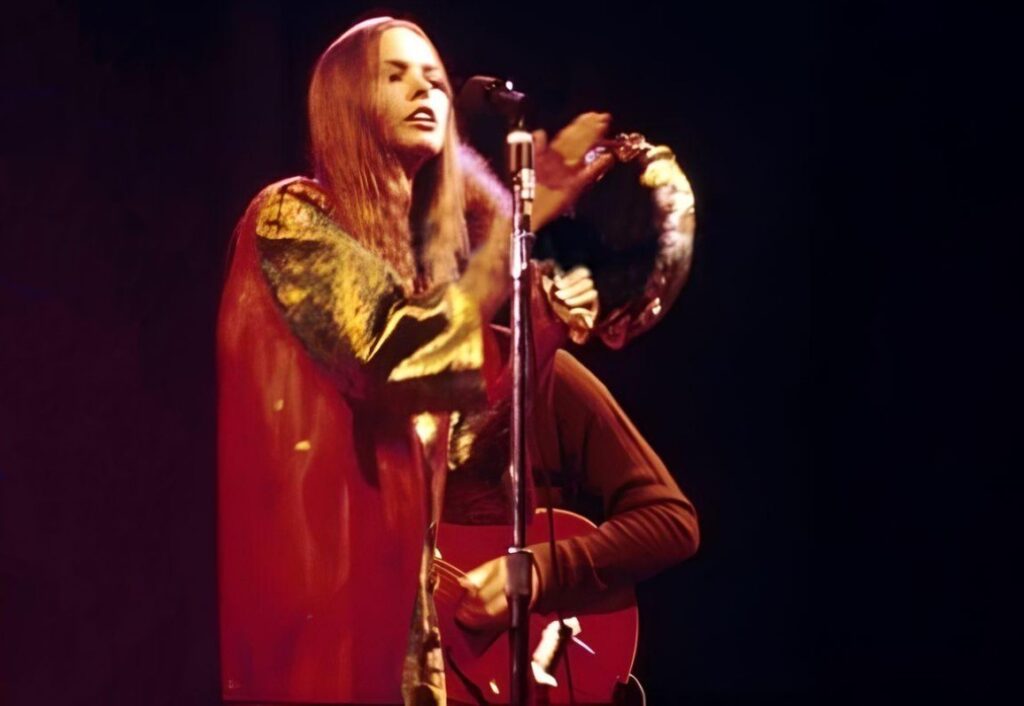
There were great songs that you chose as well. There’s the Rodgers and Hart material in the TV special. Songs like ‘Here In My Arms.’
We loved to do cover versions of everything. [laughs] As a matter of fact I was just at the Rock and Roll Hall of Fame recently because they wanted several of us to come to break ground for the new Rock and Roll Edition, there’s a new building going up.
So I met Martha Reeves for the first time. I broke the ice about it. Did it piss you off that we covered that? She said “Oh honey, so many people covered the song. You have no idea! But you were the best. We became good friends in the four days that we were in Cleveland. She’s a riot, lots of fun. As a matter of fact at the end of the whole ceremony, she started to sing ‘Dancing In The Street’ acapella to the audience that was there. There were about a thousand people that had been invited to the groundbreaking of the new building. They were all there, we were on the stage. She was very funny and great. All of a sudden she rocks into ‘Dancing in the Street’, and I’m thinking, ‘Oh my God, how am I going to follow her?’
And when I got up to the stage, after I said hello to everybody and, you know, you said, hello, to my daughter and the audience to Chynna. And then all of a sudden, I just started to sing the first verse of California Dream in acapella. All of a sudden everybody was up on their feet and they were singing along to ‘California Dreamin’. I thought, how did I get the balls to do that? But I sang it very nicely, by the way.
Oh, brilliant. One of the later singles fits very nicely with Richard’s book, ‘Gettin’ Kinda Itchie’, is ‘Creeque Alley’. Was it your idea or John’s idea to capture…
It was John’s idea. But we sat down and we wrote that song in about three hours. It was fun, because it wasn’t an easy song to write, in a sense. John had a very precise idea about what the song was going to be. And it was gonna be accurate, and it was going to be fun. It was going to involve everybody we knew in the folk world. About how everyone became famous in our new music style.
When John came to “And no one’s getting fat except Mama Cass”, I said “John, we are not going to use that!” He says “Why not?” I said “John you can’t do that. That is so insensitive. Cass is going to be so hurt.” He said “No she’s not!”. I said “Yeah, she is. She’s very self-conscious about her weight.”
I said “I’m not going to sing that lyric to her.” He says “Well, I’ll sing it.” So she comes in a few minutes later, sits down and grabs a pillow and puts it over her stomach. She says “Okay, let’s hear the song you guys are writing.” John says “Okay” and he’s got his 12 string on and he does that eight bar intro with his twelve string and we start singing the song. Cass is loving it and all of a sudden we get to that lyric. I just turned my back and I did not sing it.
John sang it and she started to laugh hysterically and threw the pillow at him and said, “Oh God, that is so funny. I love it, that’s a great lyric.” I was like, I can’t believe she’s taking it so well. But, boy, that’s a great song. It was a very cleverly written song, and although John actually did write more than I did of that song I’m so glad to have that 50%. [laughs]
What was the reason that you guys split up?
Cass had a baby and I had a baby. We had just done the last album, The Papas & the Mamas. By the time Denny and I stopped our affair, once we were behaving, we had nothing to write about. John made Denny write that song with him. ‘I Saw Her Again Last Night’. That was about the affair. I said, “John, you are just such a bastard. I can’t believe that you did that.” But we released it. It was a big hit. I said, “How can you do that, John? How can you be so callous?” He said, “Michelle, I’m not being callous. I’m turning tragedy into publishing.”
You went into acting.
When John and I separated and filed for divorce. I was over the marriage, totally over it. John was starting to do a lot of amphetamines. We all did uppers when we were on the road, but they were things that the doctor had prescribed for us.
I never thought of them as illicit drugs, because the doctor was giving them to us. But John was just getting overwhelmed with the drugs. We had Chynna. By the time I left the house, Chynna was already crawling. I remember one time, I saw John going past us, and he took something out of his pants pocket. I don’t know what he took out of his pocket, but he dropped a benny [benzedrine] on the floor. Chynna saw it, she started crawling towards the benny and I intercepted it and then I said “I gotta get out of here.”
That was a good thing that happened because that gave me the excuse to get out of the house. You know what, I married too young. I got tired of John bossing me around. I had my baby. I was very happy with my baby. I had some money. Then I started going with Jack Nicholson, who had just done Easy Rider and I just really had a great time with Jack.
I spent a couple of years with him. He knew that I wanted to get into acting and said he gave me the best advice that he could possibly have given me. That is, if I were you, I would join every acting workshop in Los Angeles, and learn all you can about the trade.
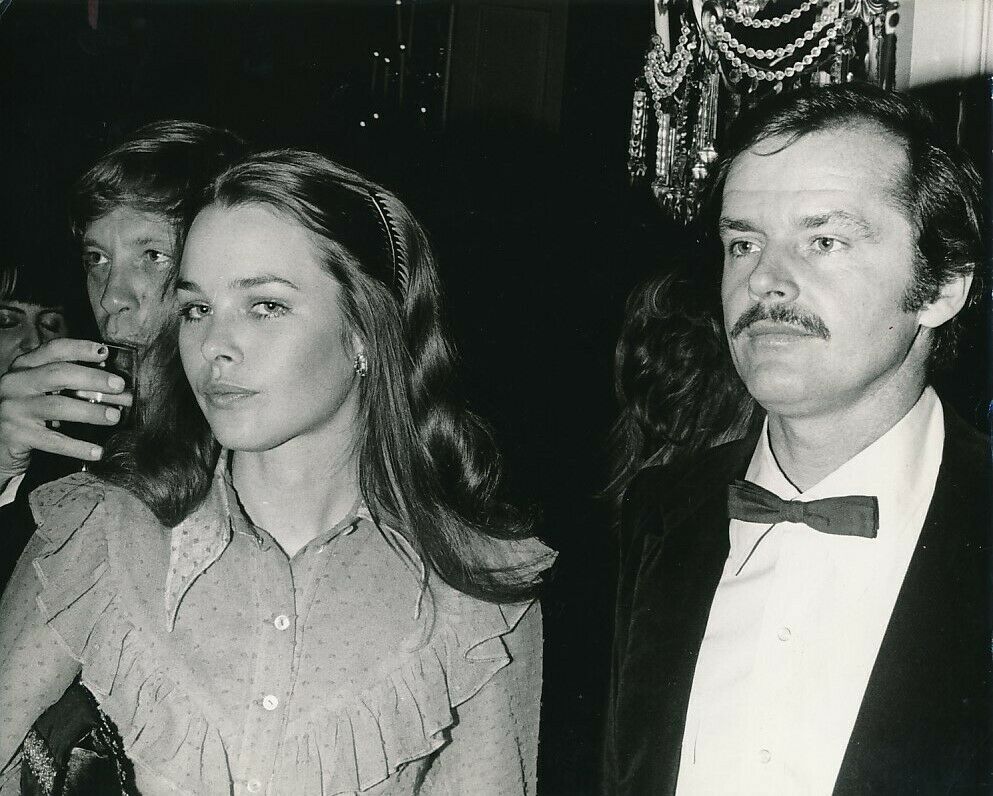
Learn all you can. He said “You’re not just gonna walk into parts without knowing how to do it. There’s a lot to learn.” So I started going to acting classes and working. Then I got an opportunity to read to John Milius for Dillinger. I walked in and I met John Milius and he didn’t ask me to read. He started telling me more about the story and he said “You would be playing his Indian girlfriend.” I said, “Oh, that’s that funny. I’m a quarter Indian.” I lied through my teeth. He said “Oh, I can see it now. Of course. Yeah, that’s great.” By the time I got home, my agent was calling saying, “You got the part. I said, “I didn’t even read for it.”
He says, “He wants you.” So that was my first acting job. Even though I had gone with Dennis Hopper, I had gone to Peru and I did some scenes in a movie that he was making called The Last Movie. And I knew that it was going to be a disaster. But I was very interested in the director, Dennis. Then I started an affair with Dennis, which was really a bad idea. After eight days of marriage, I scrambled out of Taos, New Mexico, and never saw him again. I filed for divorce the next day. I never discuss why. But I do say it’s a matter of public record that I was married to him for eight days. But my father was delighted that I was divorcing him.
Then I was nominated for a Golden Globe and then I couldn’t get arrested. Nobody would give me a job. The producer of Dillinger called up Aaron Spelling. He said “This gal, Michelle Phillips, from the Mamas of the Papas, she did a great job in Dillinger. She was nominated for a Golden Globe and now she can’t get arrested! Aaron, do you have anything she could do?” Aaron said, “Can she start work on Monday morning?” I never stopped working from that moment on.
Would you have liked to have recorded more solo material? Your album, ‘Victim of Romance’, has got some wonderful songs on, my favourite being ‘Lady of Fantasy’.
Thank you. I agree with you it didn’t even chart. But you know what? That was because there were some people who had their nose out of joint because I went directly to Jerry Moss instead of going through the ladder of people, if you want to do an album.
I went to Jerry Moss because I knew him. The feeling around A&M was, she’s so close to Jerry Moss, let him work on it. It was a disappointment because I agree with you, I think there’s a lot of really good songs on it. There She Goes’ is also another one of my favourites and I love ‘Paid the Price’, which we did with the Coasters. And I loved ‘Lady of Fantasy’, which I wrote and I think it’s a very good song. But maybe the album was too eclectic. I don’t know but it went nowhere but I still love it and I still play it all the time. [laughs]
Thank you Michelle. It has been a pleasure speaking to you and reading ‘Gettin’ Kinda Itchie’ by Richard Campbell. He’s done a wonderful job.
Thank you, Jason. I agree with you, he did a great job. And I loved talking to you and good luck.
Further information
‘Gettin’ Kinda Itchie: The Groups That Made The Mamas & The Papas’ by Richard Campbell
